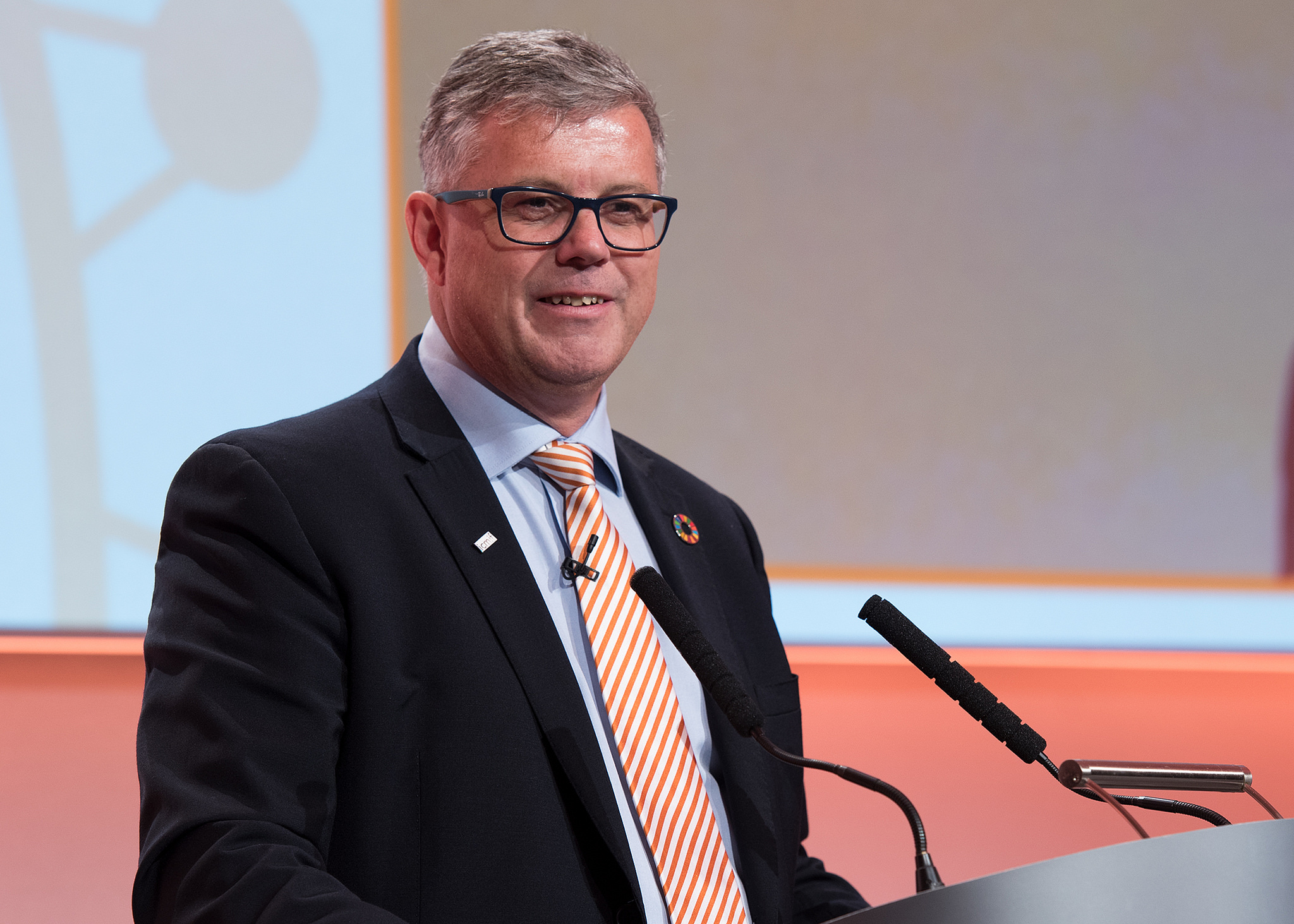The mutual insurance sector is leading the way globally in showing the insurance industry how it should be responding to the Covid-19 pandemic, says Shaun Tarbuck, chief executive of ICMIF, the global federation representing co-operative and mutual insurers.
“If we are not careful the media is going to crush us because as an industry we are not doing what we are meant to do. Doing the right thing at the right time is so very important and that is why we are showcasing our members’ stories.
“The response from our sector has been inspirational. When disaster strikes that is what people need”.
Among the almost US$1bn in support and assistance mutuals have provided in response to the pandemic so far he was especially proud that it was a French mutual – MAIF – that led the way globally in returning premiums to private motorists not using their cars while obeying government restrictions on movement.
Other firms have extended coverage, made it easier for policyholders to make claims or take premium holidays or have donated substantial sums to health services.
In the UK, he points to the £32m support package NFU Mutual has made available for its members and the rural communities they serve.
Mutuals are well placed to provide such support to their communities because of their financial strength, says Tarbuck.
“First and foremost is solvency. The markets have dived but mutuals are strong and don’t have a problem with solvency. As mutuals they don’t have access to the capital markets and so do not rely on the markets as much as other insurers. This gives them a greater resilience when there is such volatility.
This even applies the small, highly specialist mutuals that are a feature of many national markets: “On the asset side, smaller mutuals are more focussed on bonds anyway so they won’t be suffering the 30% falls in value that those exposed to the equity will have seen”.
The crisis has prompted some firms to look for creative ways of marrying their need for good quality assets with their desire to make positive contributions to tackling the Covid-19 crisis. This has brought a new generation of social bonds into the market.
Two Swedish insurers – Folksam and Länsförsäkringar – have invested US$300m between them in three different social bonds set up to counter the impacts of the pandemic and support healthcare systems. The bonds have strong backing. They have been issued by the International Finance Corporation (IFC), part of the World Bank, to provide financial support to companies affected by the Covid-19 pandemic, the European Investment Bank (EIB) to support the European healthcare system, and the Nordic Investment Bank which funds projects in the Nordic countries which are primarily aimed at promoting effective health care systems and providing financial support to reduce the disruptions that have occurred in various supply chains.
Looking at the wider implications, Tarbuck says these could be very wide-ranging.
“The strategic thinking is now focussing much more on resilience across the business. The scale and pace of change in the workplace has had an enormous push as a result of the pandemic. Workplace efficiency is making us all more resilient.
“Commercial offices will really suffer from this. Most of the prestige office space in major cities is occupied by financial services and we won’t want so much in the future”.
He also believes the crisis will have a profound impact on the way clients – personal and commercial – view the insurance sector.
“There will be a flight to quality after this. In 2008 the crisis was a banking one, not an insurance one yet the mutual insurance share of the market globally went up from 23% to 26%. We are very likely to see a similar impact this time.
“Caring and community. Those are the two key elements that will drive this. Those who have done the right thing will see more business coming their way. That’s where the true leadership comes in”, says Tarbuck.
The industry will have to work hard to rebuild its reputation and must also ensure that it has a role in providing the solutions that the world will be desperately seeking in order to protect themselves against future pandemics. He acknowledges that there will be no easy solutions to this but points to the work already being done in Africa to find practical, viable answers.
“The developing world won’t be able to afford any sort of cover against pandemics. It will need greater collaboration between the industry and the state, and this is already starting to happen with the African risk capacity being developed with the World Bank and the Insurance Development Forum which was established four years ago”.
This, he argues, shows that public/private partnerships can fill the void.
Interview by David Worsfold

